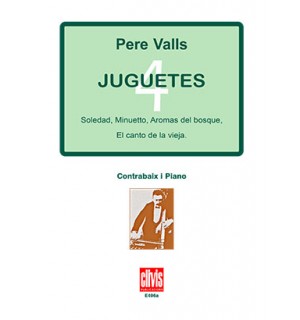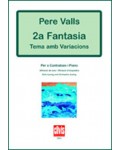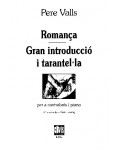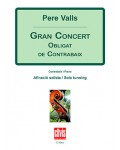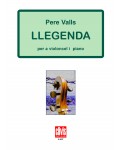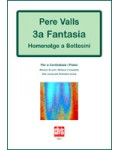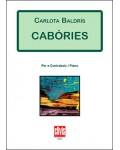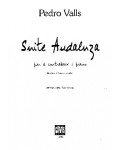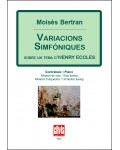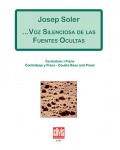
No products
Prices are tax included
Product successfully added to your shopping cart
There are 0 items in your cart. There is 1 item in your cart.
- English
- Castellano
- Català
4 juguetes
DE496a
The work 4 juguetes by Pere Valls was written in 1912, consisting of an Andalusian Caprice entitled Soledad (Solitude), a Minuet, a Gavotte Caprice, with the title Aromas del bosque (Aromas of the forest) and ending with El canto de la vieja (The song of the old woman), subtitled Catalanesca.
| Period | 20th c. |
| Subheading / Parts | Soledad - Minuetto - Aromas del bosque - El canto de la vieja |
| Instruments | cb.pno. (solo tuning) |
| Pages | 60 |
| Time | 17 min |
| Contents | score + part |
| ISMN | 979-0-3502-0667-2 |
| Remarks | Versió orchestra tuning amb la referència E496b |
| Price of print edition | 20,80€ |
| Edition | Digital |
Pere Valls’ work was strongly influenced by the Modernist musical movement, seeking authenticity based on roots in popular and folk music, and also by the influence of Romanticism and Wagnerism, so much present in the musical Barcelona of the first quarter of the 20th century. He himself took part in the activities of the Barcelona Wagnerian Association, an organisation founded in 1901, which was the first on the Iberian Peninsula popularising the work of the German composer who greatly influenced the author.
Entitled by the composer Colección de cuatro juguetes para contrabajo y piano (Collection of four entertainments for double bass and piano) it was written in 1912, consisting of an Andalusian Caprice entitled Soledad (Solitude), a Minuet, a Gavotte Caprice, with the title Aromas del bosque (Aromas of the forest) and ending with El canto de la vieja (The song of the old woman), subtitled Catalanesca. This work, like other works by Pere Valls, is his response to the need to create virtuoso music for the repertoire of his instrument based on popular and folk roots. In this way, Valls contributed to giving the double bass, until then an instrument little known among the public and played by a minority of musicians, its own class among solo concert instruments.
Pere Valls Pech
(Barcelona, 2006)

